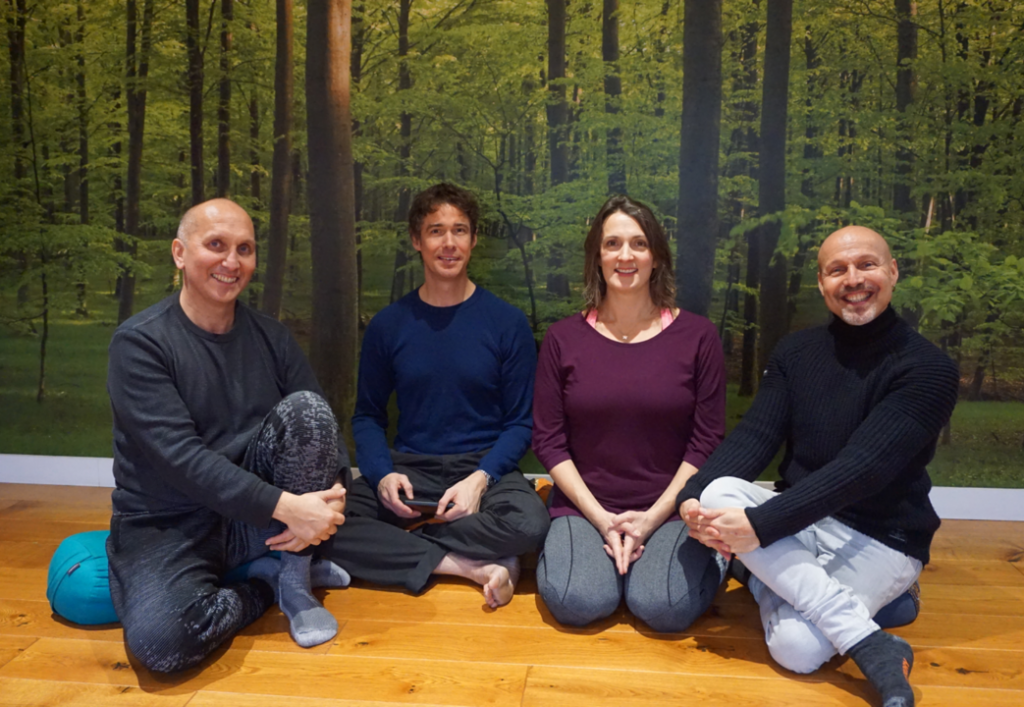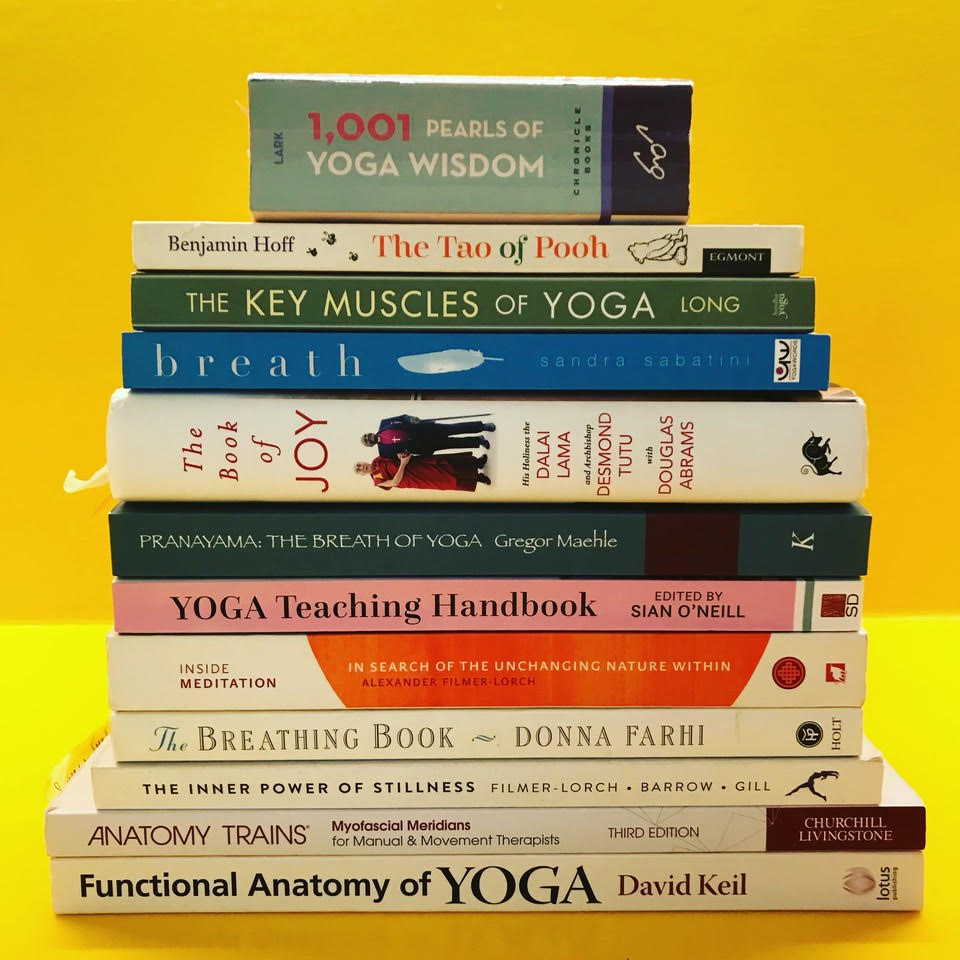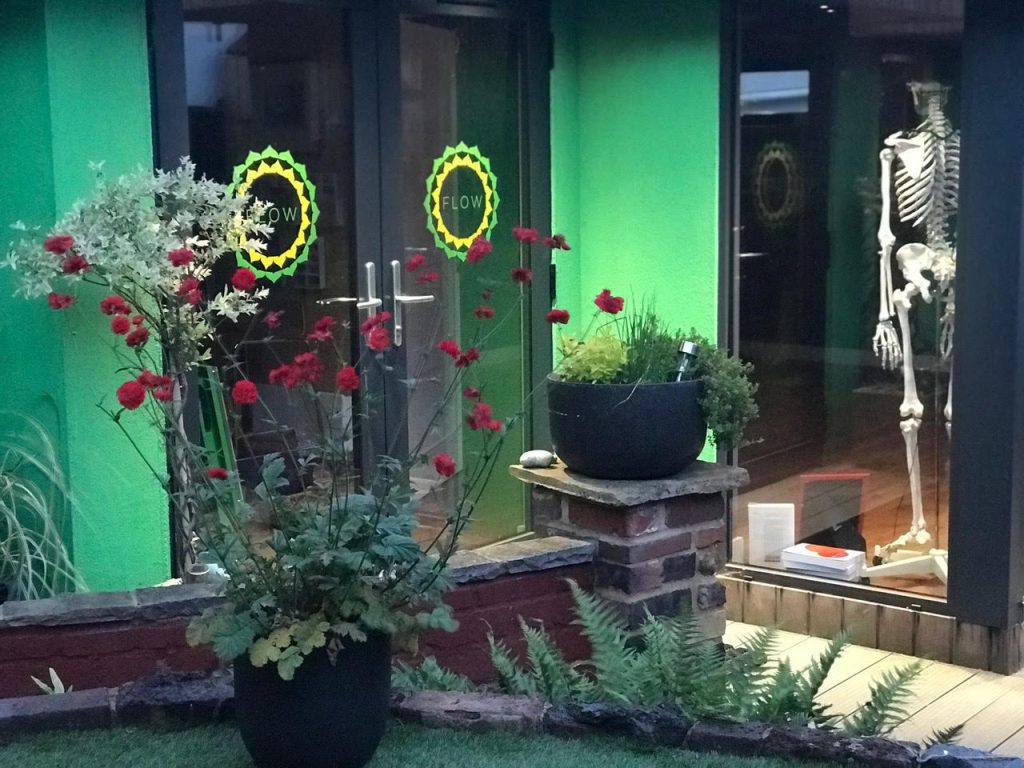How do you decide if a yoga teacher training might be the right step for you? What do you need to weigh up when choosing a yoga teacher training course? Founder of award-winning yoga studio Flow shares her thoughts on how to make this decision.
Is now the right time to embark on yoga teacher training?
What compels us to do anything? To get out of bed, brush our teeth and move in any one direction? What is it that actually drives us, inspires or stimulates us? It’s a good question to ask yourself regularly: why am I doing this? Does this act really serve me? Does this job or task or choice bring me the kind of life I actually desire for myself? It’s ever so easy to get caught up in a rut, to go along with things for the sake of ease, to save face or simply just out of habit. These are the kind of ponderings that lead people to ask bigger questions about what else they might want to do with their wild and precious life. What might be the catalyst to carving out a more fulfilling and nourishing life for yourself and for those around you?
These are the questions I certainly asked myself over 10 years ago, just before I embarked on my yoga teacher training. Questions of meaning, desire and motivation, as well as questions of practicality and viability having just been made widowed with 2 young children to care for and a mortgage to pay. Since then I’ve run two successful yoga studios and never stop learning.
So, here are my 5 top things to consider if you are thinking about launching into a Yoga Teacher Training course this year:
1. YOU’VE GOT TO LOVE YOGA
Remarkably obvious as it sounds, this is a pretty major one. Yoga is not just for Christmas but essentially for life. Once you start down this path there is no way back, yoga teaching will almost certainly engulf your very being and lead you into new and unimagined directions, opportunities and conscious choices. When it does you want to already be in love with it, even if you still find it a mystery, so you can trust the path and the direction and the joy it will bring. Without loving yoga there will be no authentic connection. No balance and harmony between the yoga and you and so you face being lost and untethered, or just frustrated and confused. If you’re not sure if you love yoga or not, I would stop here. Give it another year or so of experimenting and then think again. Maybe yoga teaching is just not for you?
2. SELF–DEVELOPMENT, NOW AND FOREVER
Life will only ever develop any one person so far. Once you’ve mastered the basics it’s up to you to seek out new ways to develop and enhance yourself in order to reveal a beautiful radiant and authentic you amongst the muddy waters of existence. We’ve established that you love yoga, so we can work with yoga to self- develop, as an on-going process. I believe that continual self-development is a key to becoming a valuable part of your local community as well as being vital to becoming a valuable yoga teacher and guide. If you think that your teacher training is the start, the middle and then the end of your learning you are wrong. The teacher training is the door opening wide to a bold new horizon of never-ending possibilities for far reaching and enriching encounters. If that sounds scary then maybe now is too soon and you would be better waiting this one out for a while longer.
3. LET THIS NOT BE AN EGO THING
If the door to never ending possibilities fills you with glee, then step forwards into the light. However, be very, very careful this light is not your ego set on fire! It is a firmly held belief of mine that a great yoga teacher need not be a great asana contortionist. Our bodies are one part of our being and therefore should be respected, treated and handled in the right and appropriate way. Only the door to self-development will never just be a body thing, and nor should yoga teaching, or teacher training for that matter. Western science is delving more deeply into this Eastern belief and revealing wonderful research about how our 3 brains work in beautiful balance with one another, heart, head and body. We move instinctively, think creatively and feel fully and only when our yoga teachers recognise this dance can we offer our students a dance floor of their very own to play and explore, ego free. If you think your ego might get in your way, or you reckon you “…already know most of this stuff,” then again, my advice is to enjoy your self-practice and leave teaching till you feel ready for your ego to take a back seat.
4. IT’S A PEOPLE THING
Having given your ego a rest, we look to society and community, friends and family. This is the nitty gritty, the love and the heart of yoga teaching for me. To learn to love my community and students with all of their perfect flaws not in spite of them. To be able to see underneath the fear, anxiety, commotion and clatter of their heads and hearts and to know, deep down through my love and trust in yoga that everything will be all right.
Knowing that everything will be all right rubs off, unless the ego decides to announce it with annoying platitudes or simplified statements of unfounded fact. Actually, just knowing and trusting, teaching gratitude and compassion, allowing space and time is a tonic that is sadly so rare. It’s a silent and intimate sharing and one that I have witnessed making the most impact in many of my students’ life. A yoga teacher and studio can give that sanctuary back to their community. That quiet space for contemplation in safety and through honest and very brave self-exploration. The body, heart and mind need to be explored in partnership, with togetherness in order to unfold fully and with careful alignment. If people are not your thing and it’s really all about you right now, then I suggest you need to go back a step and give it time.
5. DO YOU CRAVE A MORE MEANINGFUL LIFE?
Meaningful not just for you or for those around you, but for existence itself. For this planet, this species, this universe. Have you ever tried to start a project that you don’t really care about? Say you were told to do it by someone else but your heart just wasn’t in it. This can be as simple as writing a letter to as complex as getting married. But if it had no true meaning for you, if you weren’t totally committed and passionate about it and you didn’t actually care about the outcome, then you really would be better off not to start it at all. That niggle will just get bigger and be more insistent. It’s the quiet instinctual voice within that says, no this doesn’t feel right, or screams, I DON’T WANT TO DO THIS! If you have a niggle about your teacher training, then stop and listen to it. It might of course turn out to be a fear or anxiety driving your thought and you will want to know the difference. Your way to know if you really, really want this thing, is to hear your inner voice saying quietly PLEASE MAKE THIS HAPPEN?
Then we are left with the paradox that the more meaningful something is, the more we really want it, the more we might have to struggle to get it. The more deeply you feel that something will lift you up to a higher sense of self and a bigger heart, the more life might throw in a few curve balls just to be sure you’re sure. And your ego, as well as your head, will also add their own attitudes, convolutions and complexities to make sure they’ve not been entirely forgotten either! Paradox is a brilliant thing. Meaning is vital and being fulfilled is the most delicious of foods for body, heart and head.
Once you’ve reached the 5th gate of these steps and you still feel that this journey is the right one for you then CONGRATULATIONS! Now the next task is choosing the right course and that in itself is a huge undertaking. Here are the 5 things I suggest you consider when choosing the right course for you, remembering your reasons for enrolling into the training in the first place:
THE TEACHERS
If you don’t know them then 100% go and try out their classes, workshops, or online offering, such as on Movement For Modern Life. With any luck you will be spending a lot of time with these people and you want to feel comfortable in their presence, confident in their experience and certain that they are motivated to help you explore the very best of you. Find out if the course is run by just one teacher or a team of experts in their field? Who are these people and how closely does their teaching style meet with your own values and requirements? You don’t want to feel inadequate and challenged before you’ve even got started.
THE STUDIO
How do you feel in the space you will be learning in? All yoga studios have their own feel or atmosphere. This is an instinct thing and one to trust. As all studios are unique all students are unique too so be sure the studio you will working with makes you feel great, nourished, confident and supported. If you think the studio are only in it for the money, or the glory, or to produce lots of Mini-Me’s, then look away.
THE LENGTH OF THE TRAINING
How much information can you honestly digest in any given time? What is your learning style and how are you going to get the most out of your training? What are your reasons for signing up for a very quick or even a very long course? If you go for a quick course do you honestly feel this will provide you with the tools you need to become the best teacher you can be at that given moment. Many accredited courses are a minimum of 200 teaching hours. If this is squeezed into 1 month just do the maths to see what will be required of your body, heart and mind that month.
CONTENT & QUALIFICATION
No two yoga teacher trainings offer the same content. Nor do they all need to be based on any specific accreditation requirements. For example, many courses offer only an asana-based training with little meditation or pranayama focus. Some courses offer a very limited or non-existent anatomy foundation, and some have no spiritual or historical context or texts. Consider what you feel you need and desire to know to support you on your chosen path. Sadly, our global yoga community and course accreditation process is currently a bit of a minefield with no one unifying body. There are many different bodies that offer a range of different accreditation, insurance and continuing professional development bolt-ons. Check what your shortlist of courses offers and do some research on the accreditation schools and rules. The times are changing, and you will want to be ahead of the game.
THE PRACTICALITIES
Finally, take into account the cost, location, number of students per intake and scheduling of the course. This really should be the last thing. If you choose a course based firstly on cost and location it might only deliver on cost and location and where’s the meaning in that?
If you have found this useful, I would like to introduce you to our new UNDERSTANDING YOGA TEACHER TRAINING COURSE at Flow Tunbridge Wells. This exciting new yoga teacher training has been designed and developed through the mutual respect, enthusiasm and passion of its founding teachers, Alexander Filmer-Lorch, Liz Lark, Laurent Roure, Lucy and Ben Parker.
Our course is 330 hours over 20 months and is YAP accredited. We have a team of 8 exceptional senior yoga teachers covering their specialist topics including Creative Sequencing (Liz Lark and Lucy Parker), Living Anatomy (Osteopath, Ben Parker), Pranayama & Breathwork (Laurent Roure), Meditation & Philosophy (Alexander Filmer-Lorch), with modules on Sanskrit language, Historical Texts, incorporating Pregnant women into class and Ayurveda awareness. We have limited our training to only 12 student per intake and will be sharing a residential week away to build our community, creativity, support and learning together.
About Lucy Parker:
Lucy Parker is a yoga and meditation teacher and co-founder of Flow in Tunbridge Wells. Lucy has been a yoga student since her university days and continues to learn about yoga’s myriad benefits daily. If you are interested in finding out more about the teacher training at flow, you can look at the course online or give Lucy a call to hear more or apply for the training starting in May 2019, application deadline 28th February, or the second intake in May 2021.








Leave a Reply